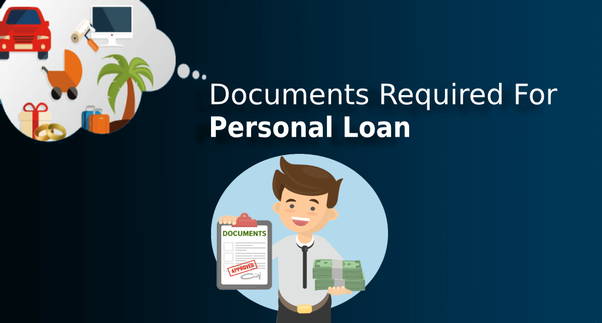Understanding the intricacies of finance can often appear as a challenging endeavour, especially when it involves borrowing. Whether you wish to bridge a short-term cash flow gap, kickstart a new venture, or address a personal financial need, securing a small loan can offer the financial flexibility you need.
The process of applying for a small loan can be streamlined by knowing exactly what documentation lenders typically require. These documents not only verify your identity and financial stability but also help financial institutions assess the risks associated with lending to you.
Different lenders might have varying documentation requirements, but certain foundational documents are almost universally expected. This blog seeks to elucidate the necessary paperwork, ensuring that potential borrowers are well-prepared, minimising potential delays, and enhancing the chances of small loan approval.
So, without further ado, let’s begin!
- Personal Identification
The first step of the lending process includes verifying your identity. The documents necessary for this purpose include:
- Government-issued ID: It encompasses a national identification card, such as Aadhar Card, PAN Card, driver’s licence, and passport. Whatever document you provide to your lender should have your photograph to confirm your identity.
- Proof of Residency: Lenders also may ask for a utility bill or lease agreement as evidence of your current address. Ensure that your address on these documents perfectly matches the one on your ID.
- Proof of Income
Lenders want to ensure that you have a steady income source to repay the loan seamlessly. Therefore, you will need to provide documents that support your income claims. The types of income documentation that are generally accepted include:
- Recent Pay Stubs: If you’re employed, providing pay stubs from the past few months can act as proof of your income. They show your earnings and deductions that can provide insight into your employment stability.
- Tax Returns: These offer a comprehensive view of your yearly income. Tax returns are especially useful in the case of self-employed individuals.
- Bank Statements: Generally, lenders may ask for the last three months of bank statements to analyse your financial stability and cash flow.
- Letter of Employment: Some lenders may request a letter from your employer to confirm your position, salary, and the duration of your employment.
- Credit History
Your credit report is a major factor in a lender’s decision to approve your small loan. In order to evaluate creditworthiness, they may ask for:
- Credit Report: Lenders will often pull this themselves from one or more of the major credit bureaus. However, knowing your credit score and having a copy of your report can be advantageous. It allows you to address any discrepancies beforehand.
- List of Current Debts: It helps lenders understand your total debt obligations and determine your debt-to-income ratio.
- Credit References: Some lenders may ask for personal or professional references who can testify for your character and financial responsibility.
- Bank Account Information
You will need to provide your bank account details for the small loan disbursement and repayment process. This includes:
- Bank Account Number: You’ll need to provide your bank’s routing number and your account number. Ensure that these details are accurate to avoid any issues with fund transfers.
- Voided Check: Some lenders may ask for a voided check to confirm your bank account information.
- Loan Purpose Description
Formal documentation is always ideal, yet it’s wise to have a clear and concise statement prepared on why you need the small loan.
- Written Statement: Detailing how the small loan will be used can build a stronger case for approval, be it for home renovation, expanding business operations, or other reasons.
Tips for a Smooth Loan Application Process
- Stay Organised: Compile all the necessary documents in an organised manner. It not only speeds up the process but also creates a positive impression.
- Check for Accuracy: Ensure all the provided details are correct. Any discrepancies might delay or jeopardise your small loan application.
- Understand the Terms: Thoroughly understand the intricacies of terms, interest rates, and any other associated fees before you sign any small loan agreement.
- Seek Professional Help: It is advisable to consult with a financial advisor who can guide you through the process if you are confused and need clarification.
Summing Up
Obtaining a small loan can be a relatively straightforward process if you come prepared with the necessary documentation. It’s essential to gather and organise these documents well in advance to expedite your small loan application and increase your chances of approval. Remember that different lenders may have varying requirements, so it’s advisable to check with your chosen lender for their specific documentation needs.
One such lender that has become increasingly popular, especially for those seeking quick, hassle-free loans, is KreditBee. They offer a platform that’s designed to be user-friendly, ensuring that borrowers can access funds swiftly, often with hassle-free documentation and quick verification processes. Platforms like KreditBee are reshaping the lending landscape, making it more accessible and often more convenient for those in need.

